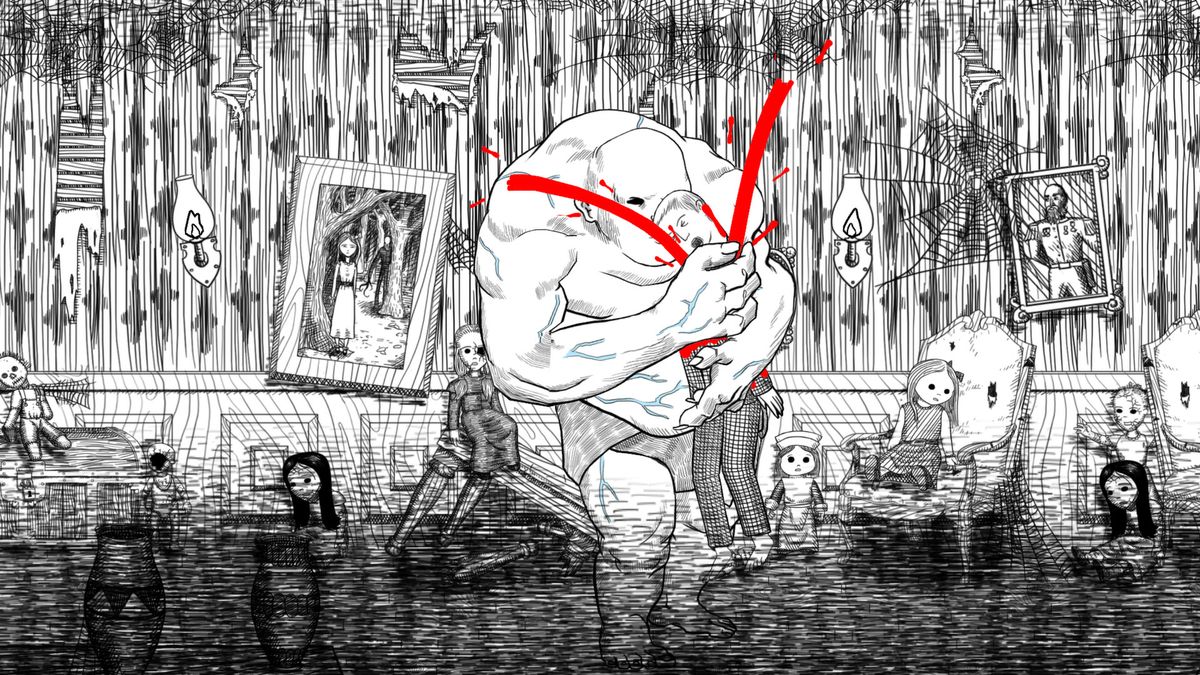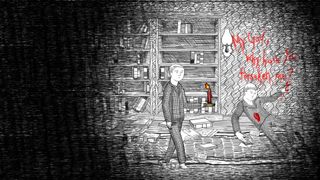This terrifying horror game about OCD helped me understand conditions different to my own
Mental Health Awareness Week | Neverending Nightmares illustrates the uglier side of OCD as it aims to enlighten and inform

It's Mental Health Awareness Week, and we've been exploring games that tackle themes of mental health – be that directly, tangentially, and everything in between. On Monday, I spoke about the vital part video games played in me facing up to mental illness, and on Tuesday we put Will O'Neill's wonderfully poignant Actual Sunlight under the magnifying glass. Yesterday, we spotlighted Eli Piilonen's Fixation and The Company of Myself; and today we're looking at Matt Gilgenbach's Neverending Nightmares – a wonderful, but unsettling horror game about the creator's obsessive compulsive disorder.
CONTENT WARNING: This article explores themes of self-harm, depression and anxiety


It's Mental Health Awareness Week – here's my video games and mental health story
Neverending Nightmares is beautiful, terrifying and enlightening all at once. Its grainy, monochromatic animations are perfectly suited to the horror genre, and its sketchy hand-drawn shadows create an uncomfortable sense of confinement. Splashes of color dance around stained glass windows, candle flames glow orange, and streams of crimson blood accentuate the perpetual darkness beyond, and the evils that often lie within.
Yet it’s the message that lies beneath this visual veneer that makes Neverending Nightmares so intriguing. The game’s creator, Matt Gilgenbach, has long struggled with obsessive compulsive disorder, and has spoken openly in the past about his own personal depressive tendencies and how they're reflected in its visuals. Neverending Nightmares is a game that holds a mirror to mental illness by creating demonic manifestations of Gilgenbach’s innermost feelings, and as the player delves deeper into its narrative, the metaphorical monsters that protagonist Thomas Smith faces get progressively more terrifying.
Smith is eventually seen self-harming and, while portrayed in the game’s animated style, it is harrowing. In previous interviews, Gilgenbach has said this approach was taken to both create something true to his experiences – he once regularly suffered graphic visions of a similar nature – and also to capture a bleak, oppressive mood within a world that’s forever closing in on the player.
Neverending Nightmares can be enjoyed/endured without prior knowledge of its inspirations, but knowing where it comes from creates appreciation on a deeper level by reflecting the creator’s personal struggles up to this stage in their life. Equally, approaching the game’s art style with such little restraint has not only helped Gilgenbach address his own feelings, but has also helped initiate a discourse around issues of mental health and how well placed video games are as a persuasive medium in tackling such important, complex themes.
For me, against my own experiences with depression and anxiety disorder, one of the main reasons mental illness is stigmatized is because some consider it 'the unknown'. I have no experience of OCD in real-life, but games like Neverending Nightmares help to put us into the mind space of creators who do. In this instance, that's at the extreme end, often fantastical in-game, but if we want to untangle tropes and understand the unknown, then the importance of games like this one speak for themselves.
Sign up to the 12DOVE Newsletter
Weekly digests, tales from the communities you love, and more
Neverending Nightmares is out now on PC via Steam, PS4, Nintendo Switch, iOS and Android.
Here are 10 games to help kickstart conversations about mental health

Joe Donnelly is a sports editor from Glasgow and former features editor at 12DOVE. A mental health advocate, Joe has written about video games and mental health for The Guardian, New Statesman, VICE, PC Gamer and many more, and believes the interactive nature of video games makes them uniquely placed to educate and inform. His book Checkpoint considers the complex intersections of video games and mental health, and was shortlisted for Scotland's National Book of the Year for non-fiction in 2021. As familiar with the streets of Los Santos as he is the west of Scotland, Joe can often be found living his best and worst lives in GTA Online and its PC role-playing scene.